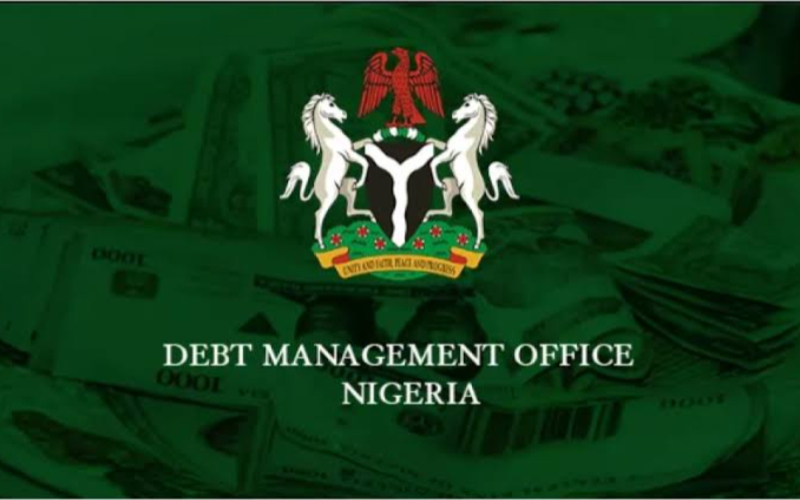Following the need to finance the 2022 budget deficit, the federal government through the Debt Management Office (DMO), in 2022, raised a whopping sum of N3.06 trillion from the bond market, the debt office monthly auction results has revealed.
Analysis of the auction results showed that total FGN bond borrowing in 2022 is 13 per cent higher than N2.71 trillion borrowed in 2021.
The federal government’s 2022 budget stood at N17.32t trillion with a deficit of N7.35 trillion, which gives room for a new borrowing of N6.1trillion.
The monthly auction results revealed that DMO had offered to raise N2.48 trillion in the bond market but eventually raised N4.65 trillion, which is over 53.22 per cent oversubscription.
the FGN bonds in the first half of 2022 recorded 37 per cent oversubscription to N3.02 trillion when N1.13 trillion was amount offered by DMO.
The debt office eventually allocated N1.84trillion to investors despite mixed interest rates.
However, in the second half of 2022, the DMO allocated N1.23trillion to investors when it seeks to raise N1.35trillion. The total amount of subscriptions was N1.63trillion in the second half of 2022.
According to investigation by THISDAY, the interest rate on 10-year FGN Bonds witnessed a significant increase in 2022 over hike in the Monetary Policy Rate (MPR) by the Central Bank of Nigeria (CBN) in its moves to tackle the inflation rate.
Notably, the interest rate on 12.50% FGN APR 2032 at 12.45 per cent in May 2022, closed at 14.750 per cent during the December 2022 auction.
The FGN bond market in 2022 witnessed increased participation by Pension Funds Administrators (PFAs) as hike in the inflation rate eroded investment in the stock market.
The pension funds industry portfolio in the FGN Bonds (HTM) increased to N8.84trillion as of October 2022, representing an increase of N489.9billion or 5.86 per cent from N8.35trillion reported by the National Pension Commission (NAICOM).
At the December Primary Market Auction (PMA), the DMO offered instruments worth N225 billion to investors through re-openings of the 14.55% APR 2029 bond (Bid-to-offer: 0.7x; Stop rate: 14.60%), 12.50% APR 2032 (Bid-to-offer: 1.5x; Stop rate: 14.75%) and 16.25% FGN APR 2037 (Bid-to-offer: 5.0x; Stop rate: 15.80%) bonds.
Demand was higher across the three tenors as the total subscription level settled higher at N532.20 billion as against N344.01 billion reported by DMO in November with more demand on the long-dated bond.
The DMO eventually allotted instruments worth N264.52 billion, translating to a bid-to-cover ratio of 2.0x.
“We maintain our view of an uptick in bond yields in the medium term, as the FGN’s borrowing plan for 2023FY and expected fiscal deficit point towards an elevated supply,” according to analysts at Cordros Research.
Reacting on the December bond oversubscription, the Vice President, Highcap Securities Limited, Mr. David Adnori explained that the interest rates on FGN bonds are more lucrative than investing in the stocks and Treasury Bill (T-Bill) markets.
According to him, “the FGN bonds have no default risk, meaning that it is certain your interest and principal will be paid as and when due. The interest income earned from the securities are tax exempt compared to the treasury bills that expired in January 2022.”
On his part, finance expert, Mr. Rotimi Fakeyejo said, “Most investors do away with the stock market and invest in FGN bond market because they have the assurance that the market is the safest of all investments in domestic debt market since it is backed by the Federal Government, and as such it is classified as a risk-free debt instrument.”
He added that, “the deficit in the budget has given room for the government to borrow. The government needs money to finance key projects this year. The money spent on debt servicing is eating deep into the government’s revenue, which makes borrowing an unsustainable form of financing.”
With the added new debts to the debt stock, it is expected that the country’s total debt stock going to hits N45.86trillion by December 2022.
Speaking on the development, an economist and Chief Executive Officer of the Centre for the Promotion of Private Enterprise, Dr Muda Yusuf, said the FG had notified the general public of borrowing more in 2022.
“Since we have a deficit of N6.3trillion and you also have an additional subsidiary budget of N4trillion, naturally it has soar up the deficit and it is easier to raise money locally than raising it at the international market. Domestic borrowing is a low- hanging fruit.
“With all the volatility and foreign exchange issues, it makes sense to borrow at the domestic market rather than borrowing from the international market. It is all a reflection of our macroeconomy environment challenges and weak fiscal policy of the government. All this borrowing also is a reflection of the weak financial position of the government and it will continue like that,” he added.
SOURCE: THISDAY











